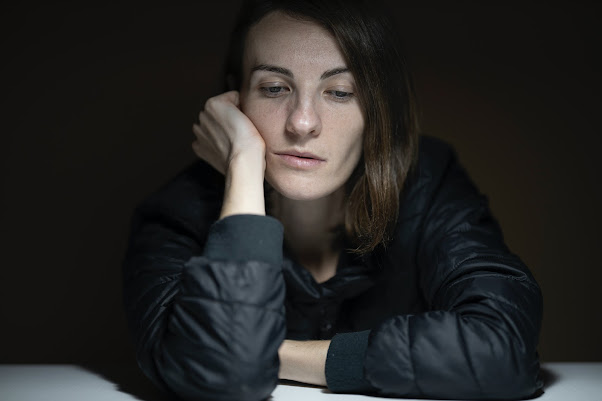How to Treat Depression without Medication
How to Treat Depression without Medication
50% of People in the world suffer from depression;
Depression is a common mental health issue. Even though some people find
that taking medication helps, many people prefer to look into non-drug
alternatives to manage and treat their depression. In this article, we'll
look at a few simple hacks that have a significant impact on the natural treatment of depression.
While depression can present itself in different ways
depending on the individual, there are a few typical symptoms to be
aware of. if you know someone who has been experiencing several of
these symptoms consistently for at least four weeks. This could be an
indication of clinical depression.
Here are common signs of depression:
Persistent Sadness: Having a
continuously depressed or empty feeling that doesn't seem to go away, even when
things get better.
Loss of Interest: Giving up once-enjoyable pastimes and
activities because one no longer finds them enjoyable. This condition is known
as "anhedonia."
Fatigue: Even after
a full night's sleep, fatigue is the ongoing experience of being tired and
short on energy.
Changes in Sleep Patterns:
Experiencing changes in sleep, such as hypersomnia (excessive sleep) or
insomnia (difficulty sleeping or staying asleep).
Changes in Appetite or Weight:
Significant changes in appetite that result in weight loss or growth. Changes
in appetite. Some depressed individuals may eat excessively, while others may
not feel as hungry.
Concentration Issues: Having trouble focusing, choosing a course of
action, or recalling details; often known as "brain fog."
Feelings of Guilt or Worthlessness: Constant feelings of guilt, blame, or
worthlessness, even when there is no logical justification for them.
How to Fight Depression without Medication
Talk about It: Speaking about your feelings and
being open with others is one of the most important
factors in overcoming depression. Sharing your feelings and thoughts with a
close friend, a member of your family, or a therapist can be extremely
comforting. Speaking about your own struggles can make you feel less alone and
more understood.
Routine Exercise: Exercise has been shown to be a
highly effective mood changer. Endorphins, which naturally improve mood, occur as a result. You don't have to start
going to the gym; even a daily walk, some yoga, or easy workouts at home can do
wonders for your mental health.
Maintain a Balanced Diet: Your mood may be significantly
affected by your food. Processed foods, sugary snacks, and caffeine ought to
all be eaten in limit as they can cause mood swings and energy dips. Focus on a
balanced diet instead, one that
includes lots of fruits, vegetables, complete grains, and lean proteins.
Take Time to Sleep: Sleep is important for maintaining
mental wellness. Make sure you receive seven to nine hours of restful sleep
each night. Your sleep quality can be enhanced by establishing a regular night-time
routine, a cozy sleeping environment, and avoiding electronics just before bed.
Practice meditation and mindfulness: You may
manage your thoughts, stay present, and minimize stress by using mindfulness
and meditation techniques. Every day, spend a few minutes in isolation
meditating while paying attention to your breath or making affirmations.
Set achievable goals: Finding the motivation to complete
challenging tasks is frequently difficult for those who are depressed. Start
small, divide activities into manageable pieces, and acknowledge your
successes. Your sense of purpose and self-worth can increase as a result of
these minor successes.
Spend Time in Nature: The presence of nature might help to
quiet the mind. Go walking, take an easy walk through the park, or just relax
in your backyard or another green area nearby. Finding calm and tranquillity in
nature can be a blessing.
Seek Professional Help: Do not hesitate to seek professional assistance and Doctors if your depression is severe or if it continues despite your best efforts. Counselors and therapists can offer helpful advice and strategies for coping with and overcoming depression.
Stay Positive: By facing negative thoughts, cultivate a positive mentality.
Embrace self-compassion and constantly remind yourself that uncomfortable days
happen to everyone. Pay attention to what you have to be thankful for.
These are some easy steps you can fight your depression easily by adopting. If your depression
is not cured even by these and your problem is old then you must meet a good
psychiatrist and tell him about your problem.





Comments
Post a Comment